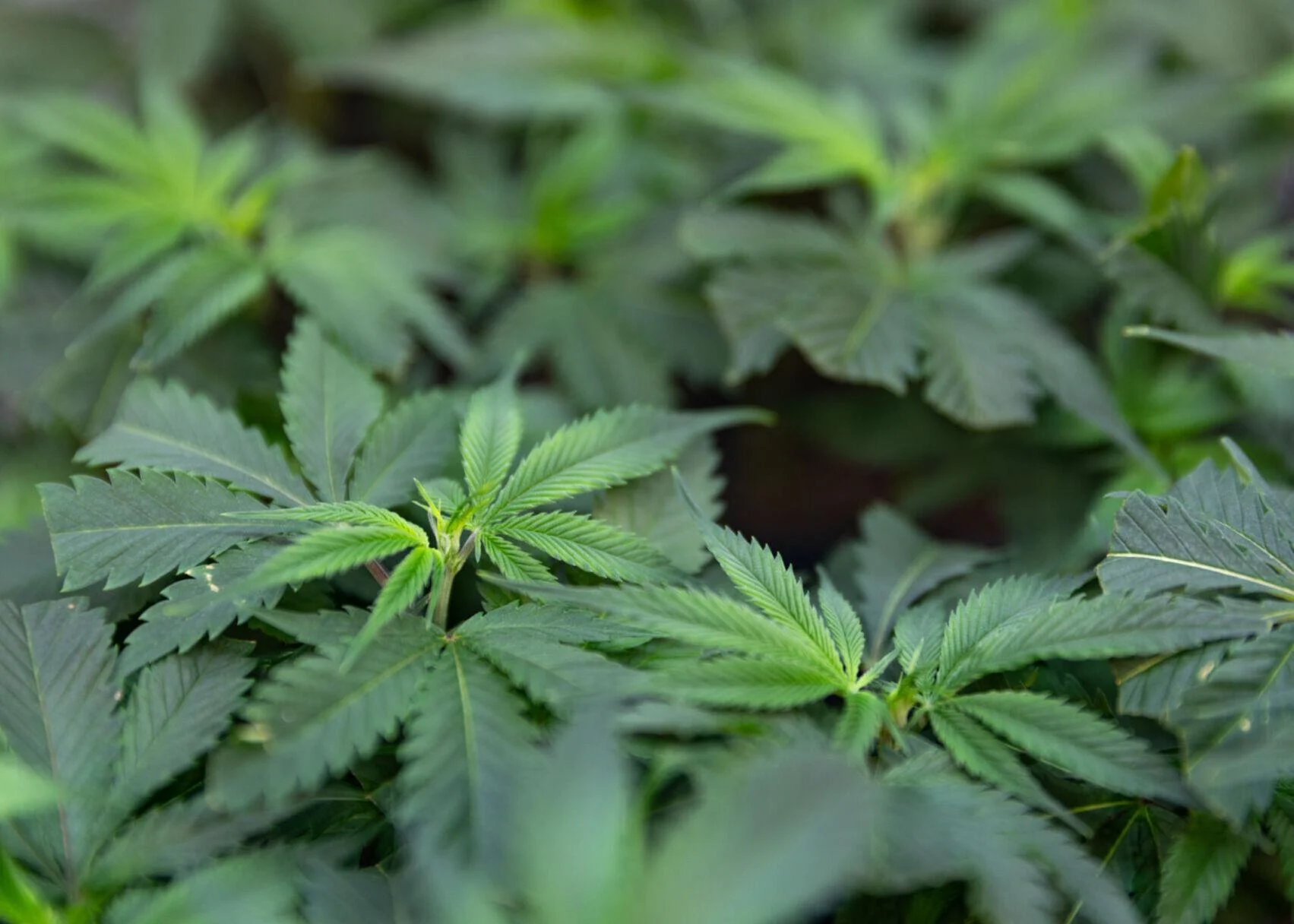
Clones are created from the mother cannabis plants at Prime ATC's production facility in Peterborough and grown under 18 hours of sunlight per day to replicate summer growing conditions. Prime ATC, now called GraniteLeaf Cannabis, operates dispensaries of medical marijuana, which was legalized in New Hampshire in 2013. (File photo by Hannah Schroeder / Sentinel Staff)
A commission now being formed will study the possibility of selling marijuana in stores run by the state of New Hampshire.
About half the states in the country license, regulate and tax the sale of marijuana for recreational use by adults, but they don’t sell it themselves, as is being considered in the Granite State.
The panel, created under a House bill this past session, will look at the feasibility of the state controlling the distribution, access and marketing of cannabis similar to the way it sells alcohol at N.H. Liquor and Wine Outlet stores.
Currently, possession of small amounts of cannabis is a citation-level offense in New Hampshire, punishable by a $100 fine. The state began a medical marijuana program a decade ago.
Over the years, the N.H. House has passed but the Senate has killed various bills to have the state join the rest of New England in legalizing recreational use.
This year, Republican Gov. Chris Sununu, who had previously opposed legalization, said he would support a state-sales model.
Under House Bill 611, the commission was tasked with examining that idea for the purpose of coming up with legislation to be considered next year, which will be Sununu’s last as governor. He has announced he will not seek a fifth term.
HB 611 requires the panel to look for ways to keep marijuana away from kids, prohibit an over-saturation of marijuana stores and allow municipalities to limit or prohibit such establishments.
Last week, Senate President Jeb Bradley, R-Wolfeboro, appointed five senators to the commission: Tim Lang, R-Sanbornton; Becky Whitley, D-Hopkinton; Bill Gannon, R-Sandown; Lou D’Allesandro, D-Manchester; and Daryl Abbas, R-Salem.
Whitley, Abbas and Lang have supported legalization measures in the past, while Gannon and D’Allesandro have been steadfast opponents.
Lang said in an interview Tuesday that the state-sales model has merit, even though some have questioned the legality of the state selling a drug that remains illegal federally.
A court challenge is always possible, Lang said, but he added that New Hampshire could make a strong argument that such sales should be permitted under states' rights provided for in the U.S. Constitution.
He also said the federal government has not shown much appetite for trying to block states from licensing private stores to sell marijuana.
“So many states have legalized marijuana in one form or another, whether for medical or recreational use, and yet the feds have done nothing about it,” Lang said. “There’s not been an attorney general willing to take any kind of action against any state.”
He also said that by selling marijuana itself, New Hampshire could better regulate the substance and the way it is marketed.
“We’d control where the messaging goes — no billboards, no social media ads — whereas it would be harder to regulate in the private market,” Lang said.
D’Allesandro said he approaches his work on the commission with an open mind, noting that there is already much marijuana in circulation.
“We’ve got to look at this thing realistically,” he said. “There’s plenty of it going on, and how do you best control it? I think that’s where my focus is going to be.”
Also on the commission are Debra Naro, executive director of Plymouth-based Communities for Alcohol- and Drug-Free Youth; Ryan Hale, vice president of government relations for the N.H. Bankers Association; and John Bryfonski, president of the N.H. Association of Chiefs of Police.
House Speaker Sherman Packard, R-Londonderry, will appoint five representatives to be on the commission, which is to submit a report to legislative leaders by Dec. 1.
The commission will take testimony from the state’s medical marijuana providers and the N.H. Cannabis Association, among others.
One of those providers is GraniteLeaf Cannabis (formerly called Prime Alternative Treatment Centers of New Hampshire), which operates therapeutic cannabis dispensaries in Chichester and Merrimack and has a production facility in Peterborough.
Matt Simon, director of public and government relations for GraniteLeaf Cannabis, said he hopes any legalization bill that emerges does not undercut the business of the medical marijuana providers.
One possible approach would be to allow these providers to also sell recreational marijuana, he said.
But he noted much uncertainty remains in the idea of New Hampshire selling marijuana in state-run stores.
“No state has tried to do this, and a big part of the reason is that cannabis sales are still federally illegal,” Simon said. “It’s one thing for the state to license private companies and allow them to do this under state law.
“But this would be the first time a state would be requiring state employees to violate federal law by selling cannabis, so a lot of the legal experts don’t think this will get off the ground.”
These articles are being shared by partners in The Granite State News Collaborative. For more information visit collaborativenh.org.

 Current Issue - April 2024
Current Issue - April 2024